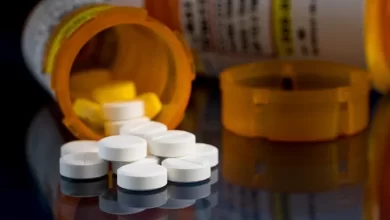What is Small Bowel Endoscopy?

Small bowel endoscopy may also be called Enteroscopy assisted by balloon. In this method, the long endoscope is placed in the small intestine to serve both therapeutic and diagnostic reasons. This procedure could employ the use of a single balloon (single balloon enteroscopy) or two balloons (double balloon enteroscopy). The endoscope is moved around the small bowel by inflation and deflating balloons as well as plaiting the small bowel on an insertion tube, similar to curtains over rods.
Small Bowel Endoscopy
One of the initial actions we take to identify an inflammatory bowel disorder is an examination by visual means of the small bowel or colon. An upper endoscopy will examine the stomach, esophagus (swallowing tube) stomach, esophagus, and the beginning in the small intestinal. Esophagus endoscopy, sometimes known as deep endoscopy analyzes the smaller intestinal tract using balloons, placed over an endoscope, in order to reach difficult-to-access areas of the small intestine. This test lets your doctor examine, diagnose or treat nearly any area within the small bowel.
The test usually lasts between one and two hours. Then, after the testing, it is recommended to take a break until the effects of the medication wear off.
You won’t be able to drive once you have completed the test and you should have someone else with you to drive you to your home. Prior to leaving the hospital, our staff will talk with you regarding your preliminary findings from the test. They will also inform you when you’ll be able to go back to your normal diet.
What is the difference between a small-bowel colonoscopy and an endoscopy?
Although colonoscopy and small-bowel endoscopy are both kinds of endoscopy procedures, they are quite different. Since Crohn’s disease can affect any area in the digestive tract we utilize small-bowel endoscopy due to its ability to see any area in the stomach. Colonoscopy, however, allows us to see the changes and issues within the large intestinal tract (colon) only.
Due to a colonoscopy’s restricted viewing space, small endoscopy is the best choice for identifying Crohn’s condition and can be used to diagnose it.
What should you expect from your small-bowel colonoscopy?
Before the procedure, we’ll provide you with instructions regarding how you can prepare for the endoscopy. It is possible that you will require a fast (not consume food or drink) prior to your procedure so that your stomach is empty prior to the procedure.
If you’re taking certain blood-thinning medications, you may have to stop them during the days leading up to your procedure because these drugs can increase the chance of bleeding during the procedure. Your physician will provide specific instructions regarding any medication you take to treat chronic illnesses, like heart disease, diabetes, or high,blood pressure.
The day before the procedure, one of our experienced anesthesiologists will take you under sedation. As you are sedated, your doctor will insert the endoscope into your mouth and stomach before passing it into the small large intestine. You won’t feel any discomfort while having an endoscopy.
The procedure can last for approximately an hour or so. After that, you’ll be resting until the sedation has gone away. It’s unlikely that you’ll be able to drive, so make sure you have someone to pick you up.
Other Advanced Endoscopic Techniques at the Carline Family IBD Center?
In addition to the upper endoscopy,our doctors also employ an array of endoscopic procedures to detect and treat IBD that include:
- A sigmoidoscopy is a scan of the lower third of your large intestine.
- A colonoscopy is a comprehensive examination of your colon, often including the end of your small intestinal tract.
- Video capsule endoscopy enables us to study difficult-to-view tumors inside the small intestine. It’s an elongated camera that can take photographs as it travels through your digestive tract.
- Endoscopic mucosal removal (EMR) I a minimally invasive procedure employing an endoscope to remove the growth of a polyp or another anyplace in your digestive system. EMR is often able to save patients from having to undergo a significant surgery
How to Prepare for Your Endoscopy?
The doctor will give you specific instructions for preparing for your appointment with an endoscopy. Your doctor might require you to:
- Fast, without alcohol or food before the endoscopy, so that your stomach isn’t full prior to the procedure.
- Stop taking certain blood thinners prior to your procedure because they could increase the chance of bleeding
If you suffer from chronic illnesses like heart disease, diabetes, as well as high blood pressure, then your physician will give you specific directions concerning your medications.



